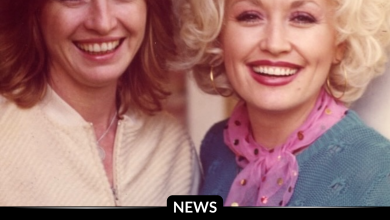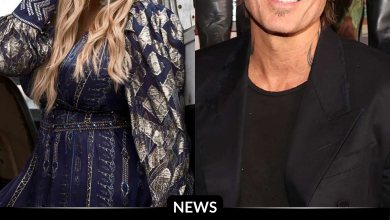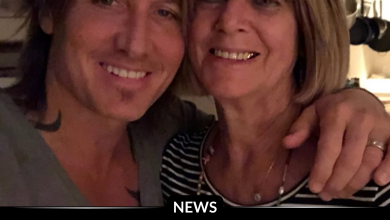The Deepest Lessons Audrey Hepburn Taught Us About Love: From Tragedy to Transformation!
OPINION: This article may contain commentary which reflects the author's opinion.
Audrey Hepburn, renowned not only for her iconic film roles but also for her deep humanitarian work, left a lasting legacy that transcends the silver screen. Her personal journey, shaped by significant trials and triumphs, deeply informed her views on love—views that resonate even today. From her childhood hardships to her reflections in later years, Hepburn’s understanding of love was multifaceted, drawn from both personal relationships and her work with UNICEF.
A Childhood Marked by Loss
Born in Brussels, Belgium, on May 4, 1929, Hepburn’s early life was scarred by her father’s abandonment when she was just six years old. She described this experience as “the most traumatic event of my life,” a wound that would shape her need for love and affection. The absence of her father led to feelings of insecurity, which, according to biographers, became a driving force behind her quest for emotional fulfillment throughout her life. This sense of yearning for love would later influence her work and public life, as she sought both to give and receive affection.
Reflections on Love Through Her Quotes
Throughout her life, Hepburn offered profound insights into love, which are immortalized in her words:
-
“The beauty of a woman is seen in her eyes, because that is the doorway to her heart, the place where love resides.” This quote highlights Hepburn’s belief in the purity of love as an intrinsic, visible part of a person’s soul.
-
“The best thing to hold onto in life is each other.” Hepburn’s emphasis here is on the importance of mutual support and connection in any relationship, suggesting that love is the foundational bond that sustains through life’s challenges.
-
“I was born with an enormous need for affection, and a terrible need to give it.” This reveals Hepburn’s understanding of love as a two-way exchange, where giving and receiving affection is essential to her emotional well-being.
These reflections showcase her belief that love is not merely an abstract feeling but a profound, lived experience that sustains personal growth and happiness.
Personal Relationships: Love’s Joys and Challenges
Hepburn’s personal life was marked by both passionate love affairs and heartbreaking realizations. Her relationships were pivotal in shaping her views on love:
-
Father’s Abandonment: The emotional void left by her father’s departure stayed with Hepburn, shaping her understanding of love’s importance and its capacity for pain. Despite her later attempts to reconnect with her father, their relationship remained strained, leaving her yearning for emotional stability.
-
Marriages and Relationships: Hepburn’s romantic history was marked by both joy and disappointment. Her first engagement to James Hanson in 1952, described as “love at first sight,” ended before marriage due to career demands, teaching her that love must involve compatibility beyond attraction. Her marriages to Mel Ferrer (1954-1968) and Andrea Dotti (1969-1980) were filled with difficulties. Ferrer, described as demanding by their son, and Dotti, whose infidelity strained their relationship, taught Hepburn painful lessons about the fragility of love and the necessity for mutual support and shared life goals.
-
Relationship with Robert Wolders: Hepburn’s relationship with Robert Wolders, from 1980 until her death in 1993, was considered by many to be the happiest of her life. Described as her “spiritual twin,” Wolders provided Hepburn with the deep connection and understanding that she had longed for. This relationship, free from the complications of earlier marriages, showcased Hepburn’s belief that true love is found in lasting, genuine companionship.
-
Affair with William Holden: Hepburn’s brief affair with William Holden during the filming of Sabrina (1954) further underscored her personal values. Although she was “crazy in love” with him, she ended the relationship after learning that Holden couldn’t have children, highlighting her prioritization of family as an integral part of her vision for love.
Humanitarian Work: Giving Love to the World
In her later years, Hepburn found a profound outlet for her love through her work with UNICEF. Her commitment to helping children in war-torn regions and impoverished countries was an expression of the love she had long sought to share. Hepburn’s humanitarian efforts were a natural extension of her philosophy of love—she saw her work as a way to give back the affection and care she had sometimes lacked in her personal life. Her granddaughter, Emma Ferrer, noted in a documentary that Hepburn’s devotion to UNICEF was her way of giving love to others, providing a deep sense of purpose and fulfillment.
A Legacy of Love
Audrey Hepburn’s life and legacy offer profound lessons about the complexities of love. From her early experiences of loss and emotional insecurity to her later years of personal reflection and humanitarian work, Hepburn came to understand love as a powerful force—one that requires both self-awareness and a willingness to give and receive affection. Her story is a reminder that love, in all its forms, is not just a feeling but an ongoing journey of connection, compassion, and personal growth.
Through her words and deeds, Hepburn’s views on love continue to inspire and offer comfort to those seeking to understand the multifaceted nature of relationships and the importance of giving love to the world. Her legacy remains a testament to the enduring power of love, both in personal connections and in the broader humanitarian efforts that change lives.



